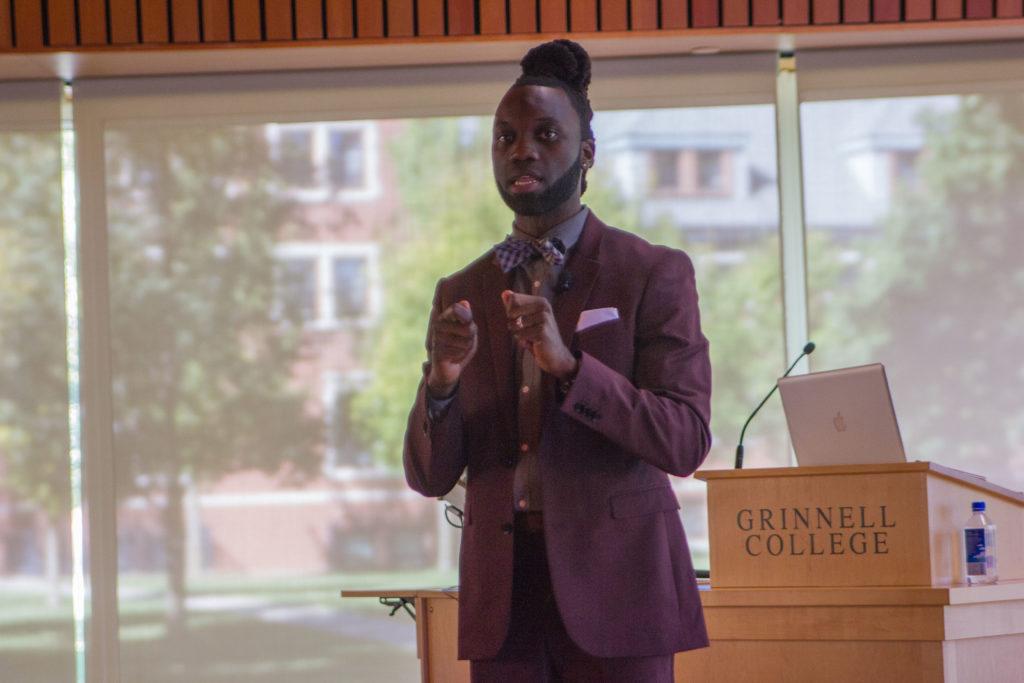By Gabe Loewenson

loewenso2@grinnell.edu
Wilson Okello, doctoral fellow and instructor at Miami University in Ohio, came to Grinnell on Thursday, Sept. 28 to give a convocation lecture about how to affect change in society and how to live in the wake of crisis.
Okello specializes in using poetry to “generate critical self-reflection, inspire confidence and achieve agency.” A large portion of his speech consisted of poetry rather than prose, and he often switched from one to another in the midst of discussing a particular topic. He especially focused on the importance of learning from the past in order to avoid repeating its mistakes.
“One of the things I appreciate the most about literary minds is their ability to … provide us with rich archives to trace and visit, so that our future and our present need not be out of touch with the currents of our past. … As the old adage goes if you don’t learn from your history then you’re destined to repeat it.”
Another primary talking point was the importance and the radical nature of defining oneself as one actually is, rather then what society expects one to be.
“One of the most radical, one of the most profound things that we will ever do is to define ourselves in a world that has already determined who we are and what we’ll do.”
This year, a theme of many events by the office of intercultural affairs is the individual in comparison with the collective.
“I met Wilson I want to say two years ago — he came to another institution that I was working at, and he came at a time when our students were very much trying to figure out what is my voice. Because there were a lot of different things that were happening and they were trying to find their voice, and we actually brought him to campus. The power that he had on … the way in which I saw students move afterwards, I thought, ‘Grinnell definitely needs that.”
Wilson said that he first obtained the idea to use poetry to inspire change about twelve years ago.
“Twelve years ago, when I went on the mic the first time, at an open mic, that was the moment when I realized, this isn’t just about me — that my public testimony could have a powerful influence on people who were here.”
Although Wilson has not always written poetry, words have always been a valuable part of his life.
“I’ve always been interested in the arrangement of words and ideas, and the way they might be able to stir people, … but I don’t know that I ever thought about what the oral tradition could do to evoke meaning for people. Thinking back, that time at open mic really brought close two ideas together for me: that writing didn’t just have to be creative writing, but that it could do something powerful in this world. So long before [that first open mic] but that moment still has really important meaning for me.”


































































